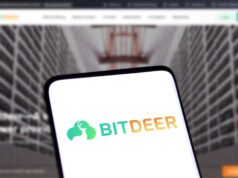In a surprising turn of events, digital investment platform Linqto pulled out of its planned $700 million SPAC (Special Purpose Acquisition Company) merger with Blockchain Coinvestors Acquisition Corp. I. The termination, confirmed on September 26, 2024, has disrupted the anticipated business combination that would have taken Linqto public. Linqto is shifting its strategy toward a direct listing on the Nasdaq instead. While this pivot has attracted attention for its strategic implications, Blockchain Coinvestors now faces a significant setback in its broader efforts to invest in blockchain and fintech firms.
The original agreement, announced in April 2024, promised to merge Linqto with Blockchain Coinvestors Acquisition Corp. I, a SPAC specifically targeting blockchain-focused ventures. This would have provided Linqto with a faster route to becoming a publicly traded entity. However, Linqto’s decision to back out of the merger, accompanied by a $5 million termination fee, has raised questions about the viability of SPAC deals in today’s regulatory environment.
The Impact on Blockchain Coinvestors
Blockchain Coinvestors Acquisition Corp. I, the SPAC designed to invest in blockchain-related startups, now faces uncertainty as it reassesses its strategic direction. This setback is a financial blow and a missed opportunity to partner with Linqto, a key player in democratizing access to private tech investments. The canceled deal forces Blockchain Coinvestors to reconsider its acquisition strategy, especially in the face of increasing regulatory scrutiny that has cast a shadow over the once-booming SPAC market.
SPACs were initially seen as an attractive option for companies like Linqto to go public without the rigorous process of a traditional IPO. However, regulatory bodies such as the U.S. Securities and Exchange Commission (SEC) have imposed tighter controls on these financial vehicles, leading to a decline in their popularity. This climate likely played a role in Linqto’s decision to shift gears and pursue a traditional IPO. Although more time-consuming, it provides greater stability and control over the listing process.
What’s Next for Blockchain Coinvestors?
For Blockchain Coinvestors, the cancellation marks a crucial juncture. The SPAC had initially targeted high-growth companies in the blockchain space. Losing Linqto as a merger partner complicates that mission. The company must now either find a new target or face the possibility of winding down. Many SPACs must return capital to investors if they fail to secure a merger within a specified period.
Moreover, Blockchain Coinvestors will need to navigate the shifting regulatory landscape with caution. The SEC’s heightened oversight of SPACs and their ability to deliver on financial projections has led many potential merger partners to reconsider these deals. Blockchain Coinvestors may have to explore alternative strategies now, realigning its investment objectives. These could include direct acquisitions of blockchain startups or forming partnerships within the decentralized finance (DeFi) and cryptocurrency sectors.
The Broader Implications
This development highlights the growing challenges within the SPAC ecosystem, particularly for companies focused on blockchain and fintech. The collapse of the Linqto deal is emblematic of broader concerns surrounding the sustainability of SPACs in the current market. For blockchain ventures, where innovation and regulatory risks intersect, the pathway to public listing is becoming more complex.
As more companies opt for traditional IPOs over SPAC mergers, the allure of SPACs is fading. This has wider implications for blockchain investors who previously saw SPACs as a quick way to tap into the public markets. For now, Linqto’s move toward a Nasdaq IPO underscores the changing dynamics within this space, while Blockchain Coinvestors must reorient itself to stay competitive.
>>> Read more: Circle Expands USDC on Sony’s Soneium Blockchain
In conclusion, Linqto’s termination of its SPAC merger with Blockchain Coinvestors is a significant moment for both companies, revealing not only the strategic decisions behind going public but also the regulatory and market forces shaping the blockchain and cryptocurrency sectors. For Blockchain Coinvestors, the challenge lies in finding a new path forward amid an increasingly complex and evolving financial landscape.
Readers’ frequently asked questions
Why did Linqto abandon the SPAC deal and switch to an IPO?
Several strategic and market-driven factors likely influenced Linqto’s decision to terminate the SPAC merger with Blockchain Coinvestors. One major consideration is the evolving regulatory environment. Over the past year, regulatory bodies, particularly in the U.S., have introduced more stringent oversight of SPAC transactions. This increased scrutiny has led to delays and additional disclosure requirements, creating uncertainty for companies considering the SPAC route. For Linqto, an IPO provides a more predictable and structured path to going public. Additionally, the market for SPACs has cooled significantly since its peak in 2020-2021. Investors are growing wary of the risks associated with these deals, including the risk of overvaluation and the performance of post-merger companies. Linqto’s decision may also reflect its confidence in securing a stronger valuation through an IPO. Not the least, it would have greater control over pricing and investor relations.
What are the potential consequences for Blockchain Coinvestors after this cancellation?
Terminating the merger with Linqto places Blockchain Coinvestors in a challenging position. SPACs are subject to deadlines that typically require them to merge with a target company within two years of their initial public offering. If Blockchain Coinvestors fails to secure another merger partner soon, it could be forced to return capital to its investors and dissolve. This is particularly problematic in a market where SPAC targets are becoming scarcer. Many companies opt for traditional IPOs instead. Beyond the immediate risk of dissolution, the cancellation could damage Blockchain Coinvestors’ reputation. It relied on a high-profile target like Linqto to demonstrate its ability to execute deals in the competitive blockchain space. Moving forward, Blockchain Coinvestors may need to adjust its strategy, potentially focusing on smaller blockchain or fintech firms. It may even consider partnerships in adjacent sectors like decentralized finance (DeFi) or digital asset management.
What is Linqto? How does it work?
Linqto is a digital investment platform designed to give accredited investors access to private equity opportunities, particularly in high-growth, pre-IPO companies. Its platform frequently includes blockchain and fintech startups, allowing users to invest early in companies within this rapidly growing industry. Linqto’s mission is to democratize private market investing, a sector traditionally limited to venture capitalists and institutional investors.
How Linqto Works
Pre-IPO Access: Linqto allows users to invest in private companies before they go public. This includes startups and unicorns—companies valued at over $1 billion—providing a rare opportunity to invest early in firms with high growth potential.
Fractional Ownership: Through the platform, investors can buy fractional shares in these private companies, lowering the financial barrier to entry. This makes private equity more accessible to a broader range of accredited investors.
Simplified Investment Process: Linqto streamlines the process of private investing. Investors can evaluate, select, and invest in vetted companies through an easy-to-use platform. Linqto handles legal and financial due diligence, simplifying what is typically a complex process.
Liquidity for Private Market Investments: One of Linqto’s unique features is providing liquidity in an illiquid market. While private market investments are typically locked until the company goes public, Linqto offers a secondary market where users can sell shares before an IPO.
In summary, Linqto is designed to simplify private equity investing by offering fractional shares in high-growth startups, including those in blockchain and crypto, while providing liquidity options that are rare in private markets.
What Is In It For You? Action Items You Might Want to Consider
Monitor IPO Developments for Linqto
Linqto’s decision to pivot from a SPAC merger to a direct IPO on Nasdaq presents a new opportunity. As the company prepares to file its registration statement, traders should stay updated on its IPO timeline and any market forecasts surrounding the offering. IPOs typically involve a more detailed disclosure process, revealing critical financial metrics and growth potential that were previously unknown. Participating early in Linqto’s IPO could provide exposure to a promising private investment platform seeking to disrupt the venture capital market.
Reevaluate SPAC Exposure in the Blockchain Sector
Terminating the Linqto-Blockchain Coinvestors merger highlights the increasing risks and uncertainties surrounding SPAC deals, particularly in the blockchain and cryptocurrency space. Traders with significant exposure to blockchain-related SPACs should reconsider their positions, especially given the ongoing regulatory scrutiny and market skepticism around SPACs. A shift in focus toward companies pursuing traditional IPOs or private equity investments in the blockchain sector may offer a more stable approach during this period of market recalibration.
Look for Alternative Blockchain Investment Vehicles
With the challenges facing SPACs and their diminishing attractiveness, traders might want to explore other investment vehicles to gain exposure to the blockchain and cryptocurrency sectors. Options include decentralized finance (DeFi) platforms, blockchain ETFs, or direct investments in blockchain startups. As Blockchain Coinvestors reassesses its strategy following this setback, it may seek to invest in smaller blockchain ventures. That could create secondary opportunities for traders to find undervalued assets in the evolving digital asset landscape.










